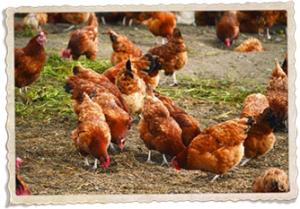We like to think we’re the only ones watching out for our chickens and that once they’re on our property; it’s just us and them.
Unfortunately, there are many animals in the wild that are just waiting for a moment to strike at chickens, especially skunks.
Other Chicken Predators
Skunks emit dangerous fumes
It takes smart planning to protect your chickens from these predators. Skunks are largely known for their smell. When they get scared, they emit a dangerous fume that can stink up a room or area for days, if not treated properly. But few people realize that skunks are also predators; they need something to eat, and often, they go after chickens or their eggs. So it’s essential that you create the safest environment for your chickens.
Skunks can burrow underground
Unlike other predators, skunks aren’t the most thoughtful animal. They tend to go after one chicken in a flock and are quite clumsy when it comes to execution. However, they pose a different threat than others. They can easily burrow underground and come out on the other side of the fencing to attack. That’s something you need to keep in mind.
How to keep skunks at bay
If you live in a skunk-prone area, you have two options with fencing. Either you dig it deeper into the ground, or you create a perimeter that is enclosed with large rocks or natural plantings. In other words, you want to make it as hard as possible for a skunk to get to your chickens. If they see obstacles, it’ll detour them from coming any further.
Tidy up your environment to make it less attractive to them. Throw trash out, so there is no scent. Ensure that your chickens are safely secured in their coop, especially at night, and fill in any den sites where skunks can enter, or hide.
With these measures in place, you’ll be skunk-free in no time. If you have any other questions or concerns, contact Chickens for Backyards today! Check back for more blog posts regarding common chicken predators and how to handle them.


